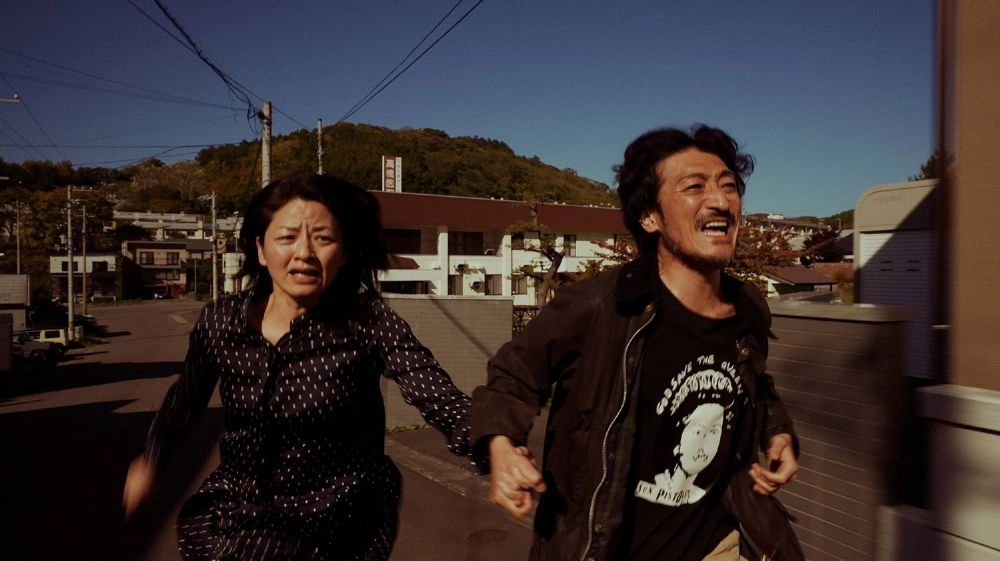With its stunning natural beauty, Hokkaido has become a go-to destination for tourists. The Japanese indie films set there are often on the chilly and grim side, however, as if unfolding under perpetual November clouds.
Over the course of two decades, Hokkaido native Yoshitaka Kamada has directed three starkly powerful dramas that fit this template: “Yumeno” (2005), “Tocka” (2023) and his latest, “Ranshima Bound” — with his bleak Hokkaido locations serving as backdrops to his characters’ stormier emotions. In “Ranshima Bound,” which premiered at this year’s Porto International Film Festival in Portugal, the action mostly takes place near Ranshima Station, a cutely retro Western-style building in the small harbor city of Otaru.
The story begins in Tokyo, however, where a middle-aged drunk is crossing a bridge when he spies a woman on the riverbank after she apparently attempted suicide by drowning. Next, we see the now sober man, Yoshio (Tomoki Kimura), on a train with the woman from the riverbank, Maki (Yuko Kii), after his brother called to tell him their mother tried to kill herself and is in a coma in a Ranshima hospital. (Why Maki is with Yoshio is for us to guess.)

















With your current subscription plan you can comment on stories. However, before writing your first comment, please create a display name in the Profile section of your subscriber account page.